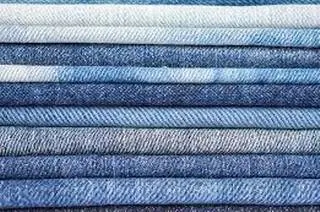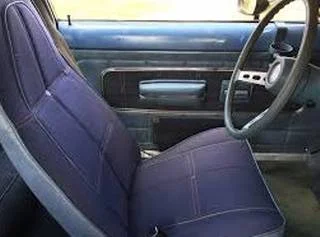Introduction
The name is said to have originated with the French
Serge de Nimes. Denim yarn is dyed and mill-finished and is usually all-cotton,
although there is a substantial amount of cotton-synthetic fiber blend.
Denim fabric
Denim fabric is a strong cotton
fabric made using a twill weave that creates a delicate diagonal trimming
design. The cotton twill fabric is warp-facing which means the weft threads go
under two or more warp threads, and the warp yarns on the side of the right are
more obvious. Denim fabric is
a durable twill-woven fabric that contains a colored warp and white
filling thread and it is also woven in colored stripes. Denim
fabric is available in a variety of colors, but the most common denim is blue
denim in which warp thread is dyed and wafer thread is left white. As a result
of the double weaving of the warp face, the textile is dominated by blue warp
thread on one side and white wafer thread on the other.
Denim fabric history
The word denim was first listed in Webster's
Dictionary in 1864 and the French phrase is thought to have come from Serge de
Nimes. The "Serge de Nimes" fabric was introduced in France in the
17th century. The fabric was made using a mixture of cotton and wool. Although
it is difficult to determine the origin of denim, several historians believe
that it was first worn by Portuguese sailors.
In the sixteenth century, denim was widely used
throughout Europe. The English began using "Serge de Nimes" in the
17th century. In 1872, he gave Strauss the idea of using rivets in his pocket.
19 In the 1970s, stone washing techniques revolutionized denim production, and
people of all ages and walks of life began wearing denim.
In the 21st century, denim comes in many styles,
including khaki, sportswear, khakis, chinos, and combat. It is available in a
variety of colors from white and blue to brown and black. It is worn by models,
movie stars, and ordinary people.
Denim dyeing process
Denim was originally dyed blue, taken from plants,
often from the Indigofera family. In South Asia, the blue color was extracted
from the dried and fermented leaves of Indigofera tinctoria. This is the plant
that is now known as true indigo or natural blue. Currently, however, most
denim is dyed in synthetic blue. In all cases, the yarn carries a repetitive
sequence of dipping and oxidation, and the more it sinks, the stronger the
blue. Before 1915, cotton yarns were dyed using a skein dyeing process that has
individual skeins of yarn were dipped in dyeing baths. Rope dyeing machines
were developed in the 1915s and slasher or sheet dyeing machines were developed
in the 1970s; Both of these methods involve a series of rolls that feed
uninterrupted yarn in and out of dye vats.
Denim fabric upholstery
Denim fabric for upholstery can be a stylish way to survive in any home of your family. Denim fabric upholstery differs from medium-weight to heavyweight and has tear resistance which makes it a durable and long-lasting fabric. Denim fabric upholstery can be used as material for both sofas and seats. And if you’re looking to match a certain color to your denim fabric upholstery project, the fabric absorbs the dye really well which will make any customization process easier and more manageable.










0 Comments